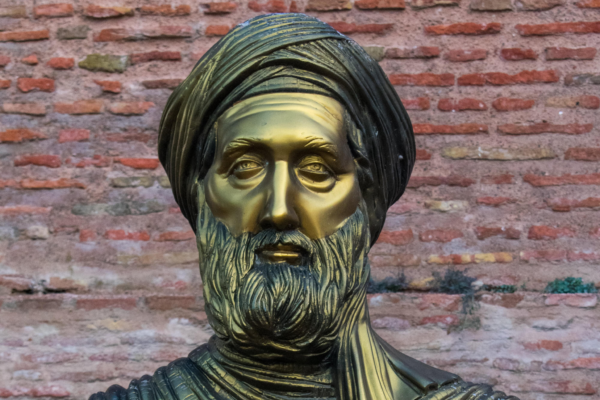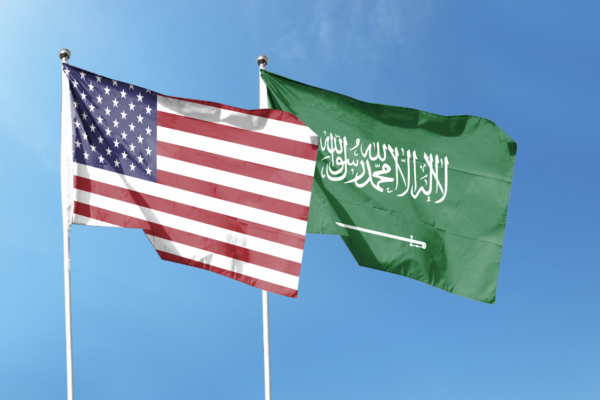I was always embarrassed to tell people that I was Muslim. I grew up in the suburbs of Vancouver, in a city where the South Asian population is prominent and growing but where I still felt shame and anxiety for my religious identity and Pakistani heritage.
On the school bus on the way back from school, the 9-year olds would somehow always find themselves in the midst of a heated political conversation. “Your people did that to ours…they blew that up…they bombed that…they killed them.” It was sort of cute, actually, if you imagine a bunch of kids with their cartoon backpacks leaning over bus seats and talking about religious wars and bombings in between bites of Dunkaroos and Oreos.
The Shaltoot Fatwa was issued in 1959 by Sunni scholar Shaikh Mahmood Shaltoot. The fatwa is a product of the Dar al-Taqreeb al-Madhahib al-Islamiyyah centre in Al-Azhar University in Cairo, meaning “centre for bringing together the various Islamic schools of thought.” The aim of the effort was to bridge the gap between the schools of thought. The Shaltoot Fatwa is a fruit of this effort.
The Shaltoot Fatwa states that all the sects are valid. No one is a “heretic” for following the Shia doctrine and transferring between sects is not a crime. The full Fatwa can be read here.
In 2012, the dean of Islamic Studies at Al-Azhar issued a fatwa against the Shaltoot Fatwa of 1959, condemning the Shia as heretics. This new fatwa can be seen as a product of growing Wahhabism.
Wahhabism is a puritanical, fundamentalist branch of Islam promoting a certain kind of Sunnism. Wahhabism is based upon the teachings of Muhammed ‘Abdel Wahhab and is “a very particular response to Arabian society during the eighteenth century that emphasized the singularity of God in the face of a growing appeal of saint adulation and excessive visitations to shrines”[1]. The rise of al-Saud, the ruling regime in Saudi Arabia, is tightly knitted with the founder of Wahhabism and the doctrine itself. ISIS is a product of the Wahhabi ideals that Saudi Arabia is based upon and that Saudi monarchs support.
Saudi Arabia plays a direct role in spreading Wahhabism across the Muslim world. By building mosques and madrassas—Islamic schools—in poor countries like Pakistan, Malaysia and Indonesia, Saudis are able to promote their Wahhabi agenda. They abuse poverty as the choice for many in these countries becomes “going to an extremist madrassa or getting no education at all.”[2] An estimated $100 billion is spent on promoting Wahhabism across the Muslim world. Politicians like Hillary Clinton can condemn Saudis all they want for their backwards regime, but the truth is, as long as they continue buying oil from Saudis and receiving donations, they are supporting terrorism.
Wahhabism promotes hate towards anyone who does not follow the Wahhabi doctrine. That can mean Sunnis as well, but also Shias, Sufis, Ahmadis, and other marginalized sects within Islam.
Wahhabism is what killed Amjad Sabri in Karachi. Amjad Sabri was a famous Qawwali singer. Qawwali is a form of Sufi devotional music—this makes Sabri a heretic in the eyes of Wahhabis. The TPP—the Pakistani Taliban—has claimed the act.
When politicians like to condemn all Muslims as adherents to the same faith that ISIS follows, they not only generalize all Muslims, they also forget the sectarian nature of Islam. Wahhabism promotes a “pure” Islam which means the elimination of different sects. By ignoring the Shia genocide fueled by Wahhabism, the media can paint all Muslims with the same brush. The truth, however, is very different.
Although it is still a generalization to say that all Sunnis follow a Wahhabi doctrine, it is a larger injustice to say that all Muslims agree with groups like ISIS when Shias—who make up over 100 million of the Muslim world population—are brutally targeted by ISIS.
The schism between Shias and Sunnis is centuries old, rooted in differences in leadership after the Prophet (pbuh) died without a clear guide for successor. Islam is a religion that sees all people as one before God. This is what makes Islam unanimous across different races. It is what brings together millions of Muslims of different races and heritages to Mecca every year as equals before God. And yet, it is the differences between Islam that are are ripping the Ummah apart.
I’d argue that most Sunnis, like myself, are unaware of Wahhabism and of its ties with countries like Saudi Arabia. Most Sunnis are unaware that their hateful attitude towards Shia are feeding straight into the hands of Saudi Arabia and their Wahhabi, terrorist agenda. Sunnis who perpetuate hateful rhetoric against Shias, be it subtle, are not only straying from Islam which teaches equality, but they are also doing ISIS’s work for them. They are feeding into “radical Islam.” They are fuelling sectarian hate and have the blood of minority sects on their hands.
I remember the first time I was able to say I was Muslim in a public setting without shame. We were discussing a political situation in a classroom. No Dunkaroos, no Oreos. I felt strong. Different. Tingly in my cheeks but unwavering in my speech. I thought back to all those days on the bus where I would be overcome with shame for being the only Muslim in my grade, when I felt personally at fault for crimes I had not committed.
I think of the Shia who not only deal with shame in front of non-Muslims, but in front of Muslims as well. Shias who are not only ostracized from non-Muslims, but from their Muslim brother and sisters as well.
Let me make it clear: there is nothing Islamic about spreading hate.
As sects go, Shias and Sunnis have few differences, some minor and some major, that over the centuries, have spread and spread. The differences, despite more similarities, are what define Sunnis from Shias.
Imam Khomeini perhaps says it best: “We Muslims are busy bickering over whether to fold or unfold our arms during prayer, while the enemy is devising ways of cutting them off.”
Footnotes
[1] https://www.chathamhouse.org/sites/files/chathamhouse/public/Research/International%20Security/azzaml.pdf
[2] http://www.huffingtonpost.com/dr-yousaf-butt-/saudi-wahhabism-islam-terrorism_b_6501916.html





